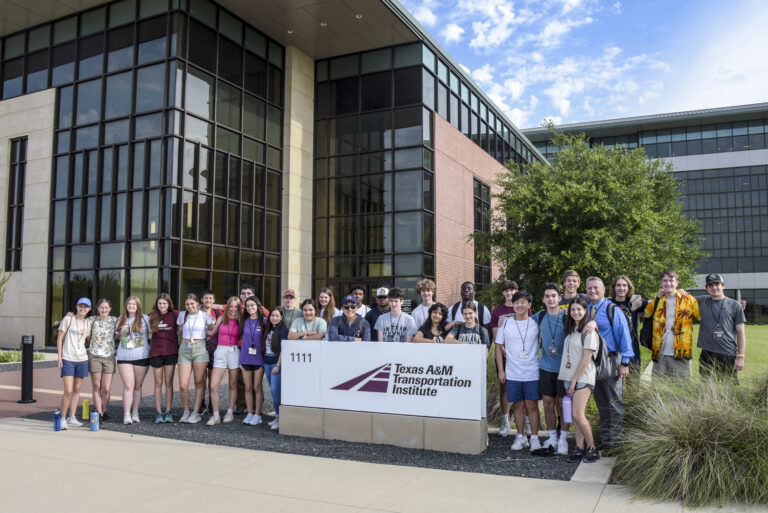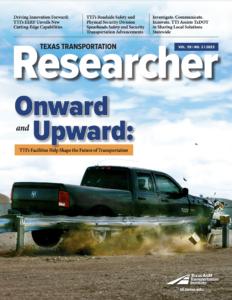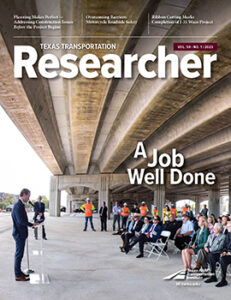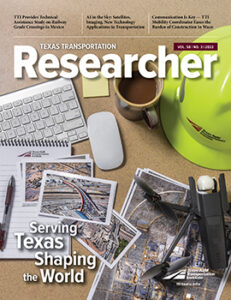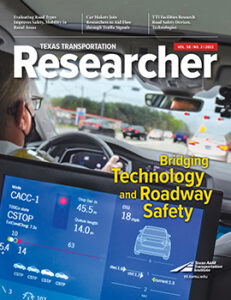Featured
Transforming Interns into Transportation Professionals: TTI’s Dynamic UTC Summer Internship Program
FROM VOLUME 60, NUMBER 1 (2025)
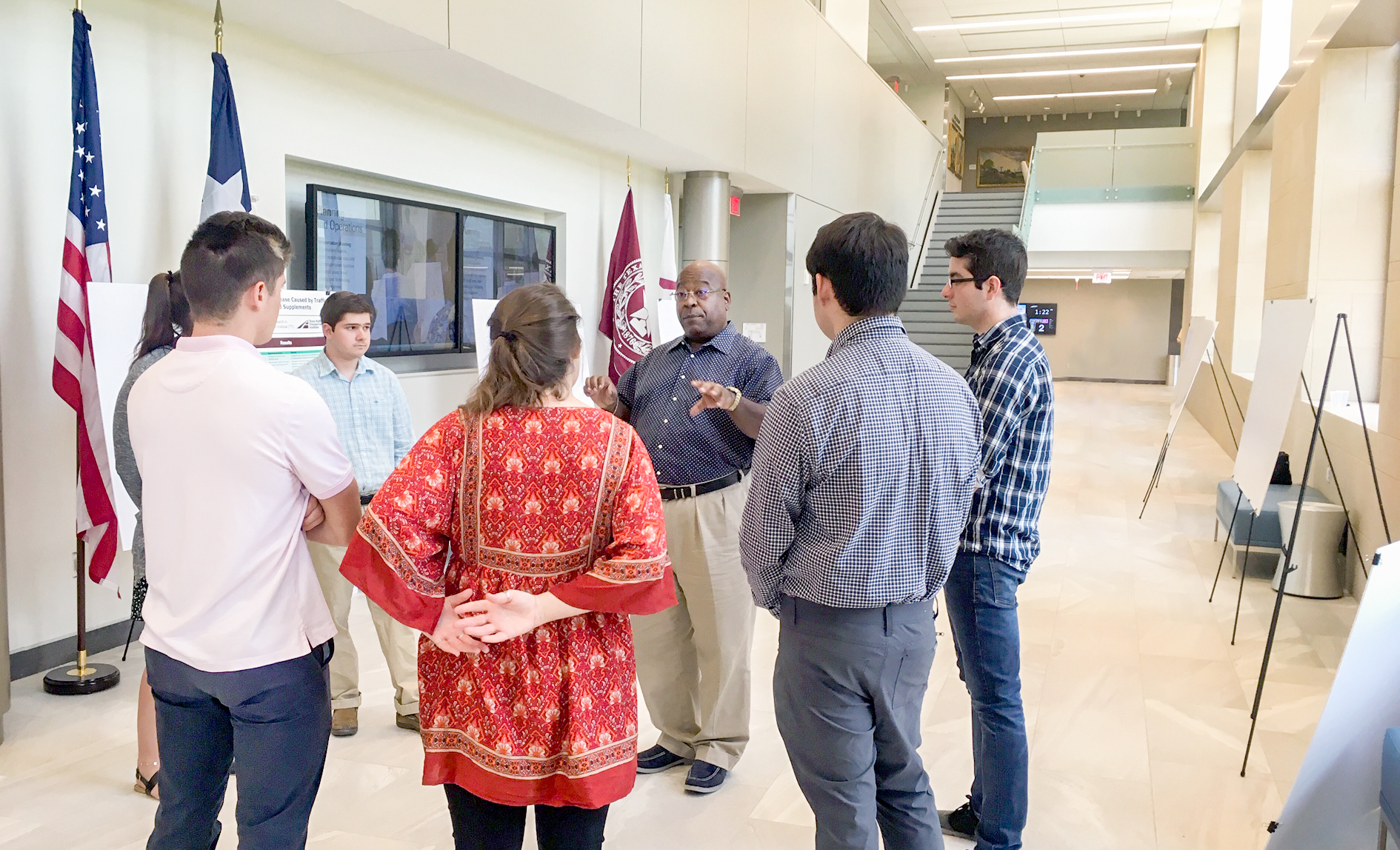
Interns gain practical experience presenting to and engaging with professionals in their field, fostering vital skills and connections for future success.
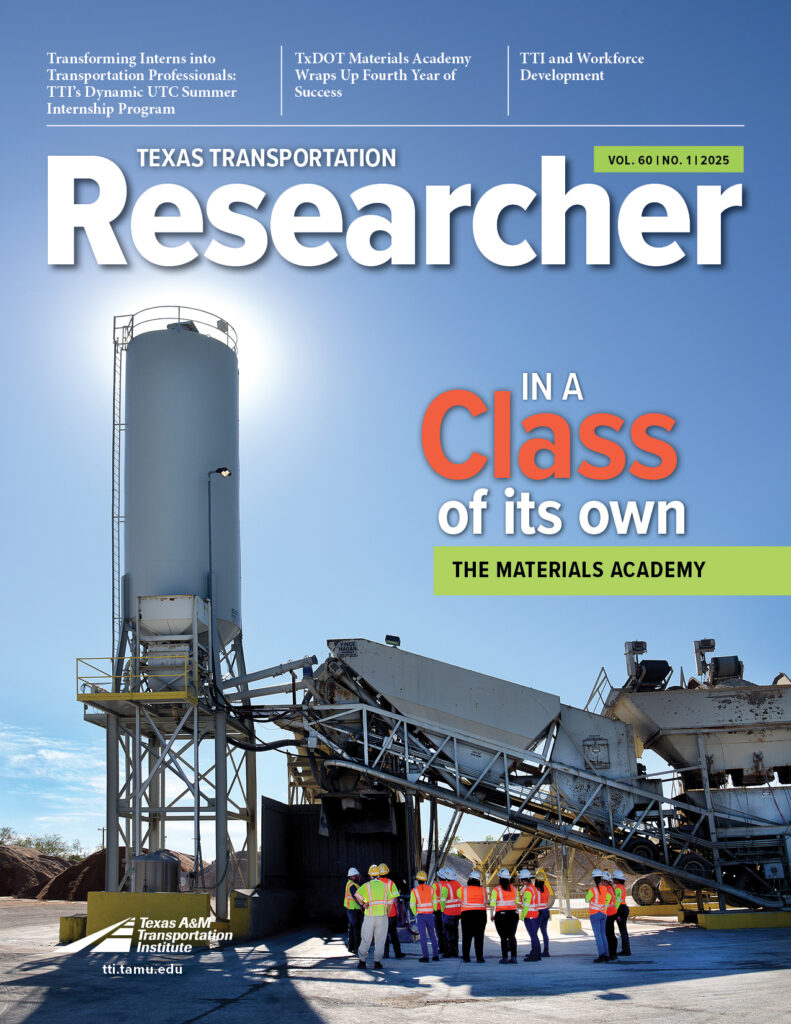
FROM VOLUME 60,
NUMBER 1 (2025)
Read next
College students face the daunting challenge of securing employment upon graduation. With little to no prior experience, young professionals can find that task quite difficult.
In the world of career building and professional growth, internships stand as a pivotal gateway. Internships are not just summer jobs or resume fillers; they are experiences that mold, challenge and inspire individuals on their journey toward personal and professional development. Internships are often seen as a rite of passage, but what if they could be so much more?
Why internships matter
Career experience
Hands-on research with TTI
Mentorship
One-on-one guidance from professionals
Networking
Building industry connections
Opportunities
Pathways to full-time positions
The Texas A&M Transportation Institute (TTI) offered the University Transportation Center (UTC) Summer Internship Program from May 28 to Aug. 2, 2024. This program offers interns an opportunity to participate in TTI transportation research sponsored by the partnering UTCs.
The participating UTCs include:
- The Center for Advancing Research in Transportation Emissions, Energy and Health (CARTEEH).
- The National Center for Infrastructure Transformation (NCIT).
- The Southern Plains Transportation Center (SPTC).



“These internships provide undergraduate students with a unique opportunity to immerse themselves in the world of transportation research and explore all its capabilities,” says TTI Associate Research Scientist Laura Higgins, the primary coordinator for the internship program. “With our interns, we try to create more transportation professionals to carry us forward into the next generation.”

Since 2014, TTI has offered this summer internship program through the sponsorship of a variety of UTCs including Advancing Transportation Leadership and Safety, Transportation Safety Through Disruption, and the National Institute for Congestion Reduction.
Each UTC has distinct core focus areas, providing more opportunities to potential interns. CARTEEH, TTI’s longest-running program, focuses on the impact of transportation emissions, energy and health. NCIT immerses interns in the world of infrastructure transformation, while SPTC specializes in climate-related transportation challenges and resilience.
The selection committee of each UTC typically accepts two to six students from various majors, typically resulting in eight to twelve interns joining TTI’s ranks each summer.
Depending on the chosen UTC and research topic, each intern is paired with a TTI research mentor who collaborates with them on an ongoing research initiative. The mentorship offers a one-on-one working relationship, allowing interns to network and gain deeper insights and knowledge from their mentor.
“Working alongside and guiding our interns through their transportation research initiative has been a rewarding and productive experience,” says TTI Associate Research Scientist Michael Martin, a mentor who has participated in the internship program for the past three years. “Witnessing their passion, creativity and dedication to solving real-world challenges reaffirms my belief in the transformative potential of young minds in shaping the future of transportation.”
Not only is this prestigious internship beneficial due to the unique expertise of the three UTCs and one-on-one mentoring, but the internship also prioritizes flexibility, catering to the individual needs of its interns. In response to the COVID-19 pandemic, TTI transitioned its internship program to a virtual format to ensure that undergraduate students could still take advantage of this opportunity. TTI has since adopted the virtual component as a permanent option.

Those who choose to reside in Bryan–College Station, Texas — near TTI’s headquarters — receive a housing allowance (estimated at $1,500) and a $1,700 food allowance, on top of $6,000 paid to interns for the 10-week period.
Describing internships as a gateway takes on a very literal meaning within the context of TTI’s UTC Summer Internship Program. Several former interns chose to continue their journey with TTI by becoming student workers or even successfully securing full-time research positions upon graduation.
Elizabeth Rhinehart, who interned with TTI in summer 2021 and now serves as a TTI graduate research assistant, shares her thoughts on her internship experience, stating, “This internship provided me with invaluable experience that I have been able to apply in my new role as a graduate research assistant. In addition to enhancing my knowledge surrounding the interaction between transportation and public health, I have gained critical transferable skills and built lasting relationships. My participation in transportation research, which began with my CARTEEH internship, has expanded my academic versality, properly preparing me to pursue my graduate education. I am incredibly grateful that my internship experience opened the door to a fulfilling career path at TTI.”
FUNDING
UTCs fund the individual research projects, while internships are on a separate line of funding. Because intern salaries are financed from a separate funding stream, mentors are not required to include intern salaries in their project budgets. This clear distinction in funding sources simplifies financial planning and allocation, allowing mentors to focus on the core research activities and mentorship aspects of the program.
For more information, contact

Laura Higgins
FUNDING
UTCs fund the individual research projects, while internships are on a separate line of funding. Because intern salaries are financed from a separate funding stream, mentors are not required to include intern salaries in their project budgets. This clear distinction in funding sources simplifies financial planning and allocation, allowing mentors to focus on the core research activities and mentorship aspects of the program.
“This internship provided me with invaluable experience that I have been able to apply in my new role as a graduate research assistant. In addition to enhancing my knowledge surrounding the interaction between transportation and public health, I have gained critical transferable skills and built lasting relationships… I am incredibly grateful that my internship experience opened the door to a fulfilling career path at TTI.”
Elizabeth Rhinehart
2021 TTI Intern
read next
FROM VOLUME 60, NUMBER 1 (2025)
Explore other issues



